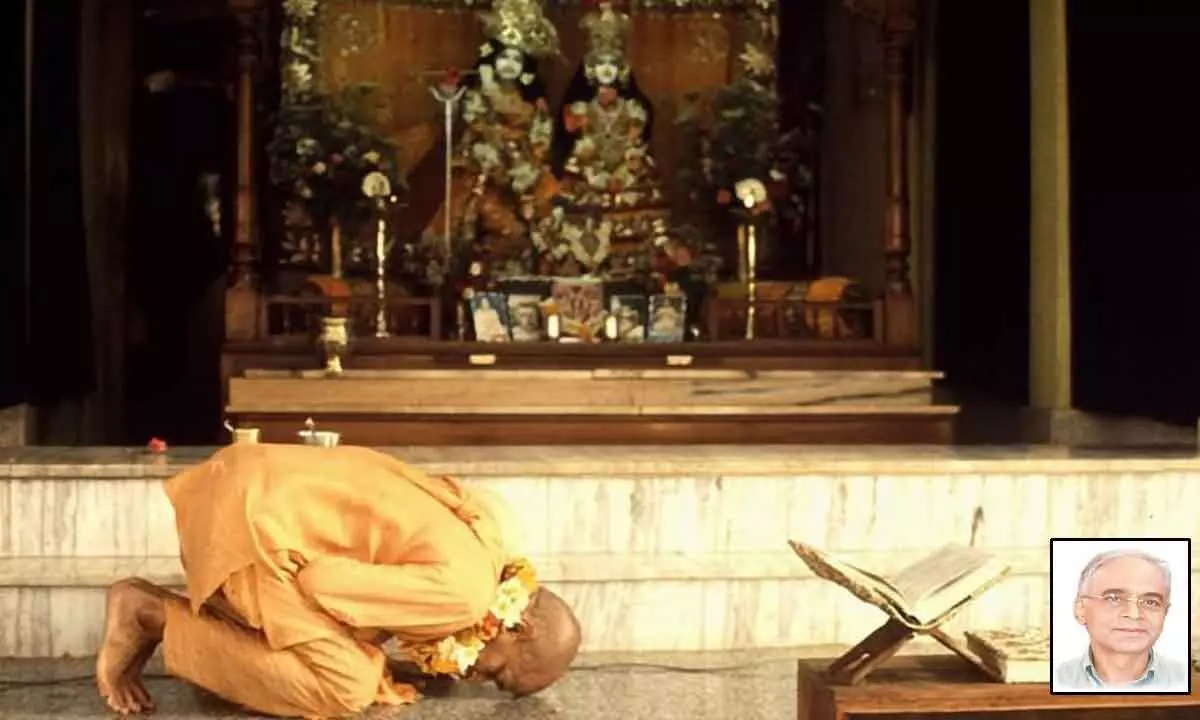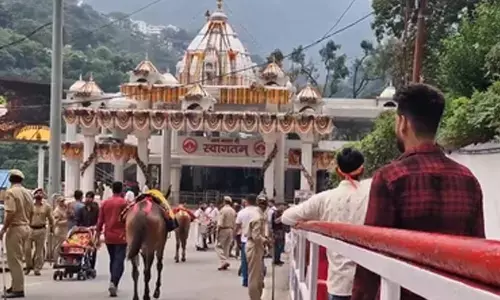Social Consciousness: The qualities of a good devotee

The person who realizes reality at the highest level or even worships God at the cosmic level sees that he is one with the cosmic body
All devotional literature in the Indic religions is intended to purify a person’s character. Srimad Bhagavatam is like an encyclopedia of devotion. The A to Z of devotion is illustrated through several stories of devotees whose names are known even to the illiterate in India. In addition, there are independent texts such as the Bhakti sutras, one by Narada and another by Shandilya. These books describe the philosophy and psychology of devotion in various aphorisms.
The Gita too, encapsulates the essentials of bhakti in chapter 12. Krishna describes the qualities of a good devotee in seven verses. Who is a good devotee? He is one who has realized the highest truth and loves God for all his glory. Let us leave out those who go to temples with personal grievances but consider those who worship for the sake of love for a higher principle. We find that they are at different levels of maturity. One may worship a limited god-form sincerely and purify his day-to-day actions. A more mature person may think of one God who is the only ruler of the universe. He visualizes the whole universe as one organic body, governed by a higher principle, which we call God. The next higher level is discussed in Vedanta where God is not even a person, but it is an entity of the nature of infinitely existing consciousness, manifesting as creation. There is no worship at this level; it is only a realization.
The person who realizes reality at the highest level or even worships God at the cosmic level sees that he is one with the cosmic body. Gradually he loses his little social identity. He acquires hitherto unknown qualities automatically. Krishna describes some of his qualities (Gita 12-13 to 19). He sees all beings as his own self and hence he cannot hate anyone. He has a friendly and compassionate approach to all. His ego is merged with the universal self, and he is neutral to happiness or misery. He does not do anything which causes anxiety to others, and he is free from envy, fear, and anxiety, because he sees all beings as divine. In short, he is free from all the trappings of the ego which make people petty, greedy, or violent. The highest goal of Vedanta is for a person to be like the God himself. Just as God has neither a partial attitude for his devotees nor hatred for non-devotees, the true devotee does not hate even the enemy. The devotee does not have enmity with anyone, but others may have enmity with him for their own reasons. The realized person does not hate them too.
A question may arise whether this is not suicidal for a society if it follows this philosophy? True, but society has different levels of people. There are people whose duty is to protect society and dharma. Here we are talking about a person of renunciation.
There is an axiomatic saying in Vedanta (in common with logic) which describes the cause-effect relationship between things. It is that the qualities of the cause remain transmitted on to the effect. For instance, gold is the cause and hundreds of varieties of ornaments are effects. Clay is the cause and hundreds of varieties of jars are effects. The five elemental principles – earth, water, fire, air, and space – are the material cause and all the living beings including the plant kingdom are their effects. When the effects get destroyed, only their physical shape changes but the constituents get back into the cause. The ornaments lose shape and become gold, only to take new shapes.
It is the same in the case of a realized devotee. The qualities of the Supreme Reality devolve into him. A good devotee is one who realizes the Supreme cause and thus sees all effects (all beings) as its various forms. One Reality has taken several forms, says the Purusha suktam. The devotee realizes it and sees all things as manifestations of one cause.
(Writer is former DGP, Andhra Pradesh)
















